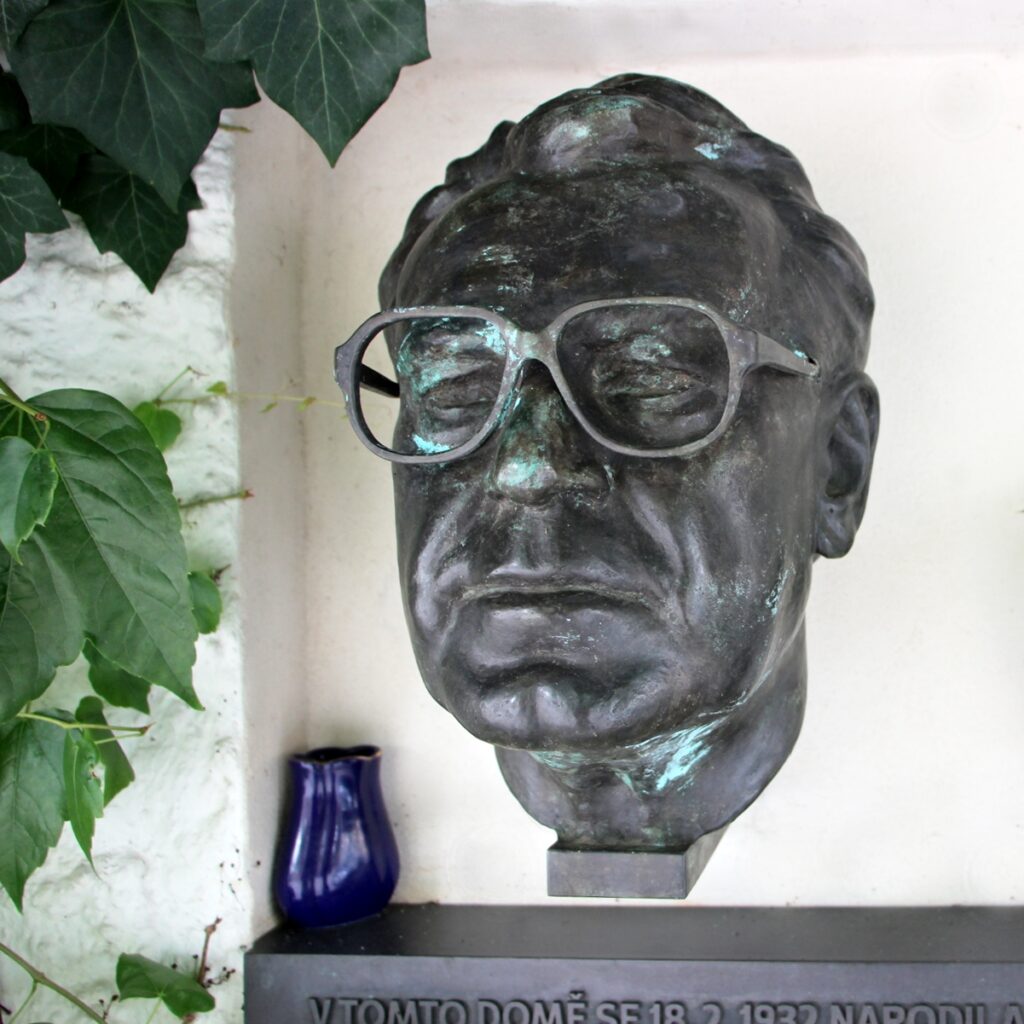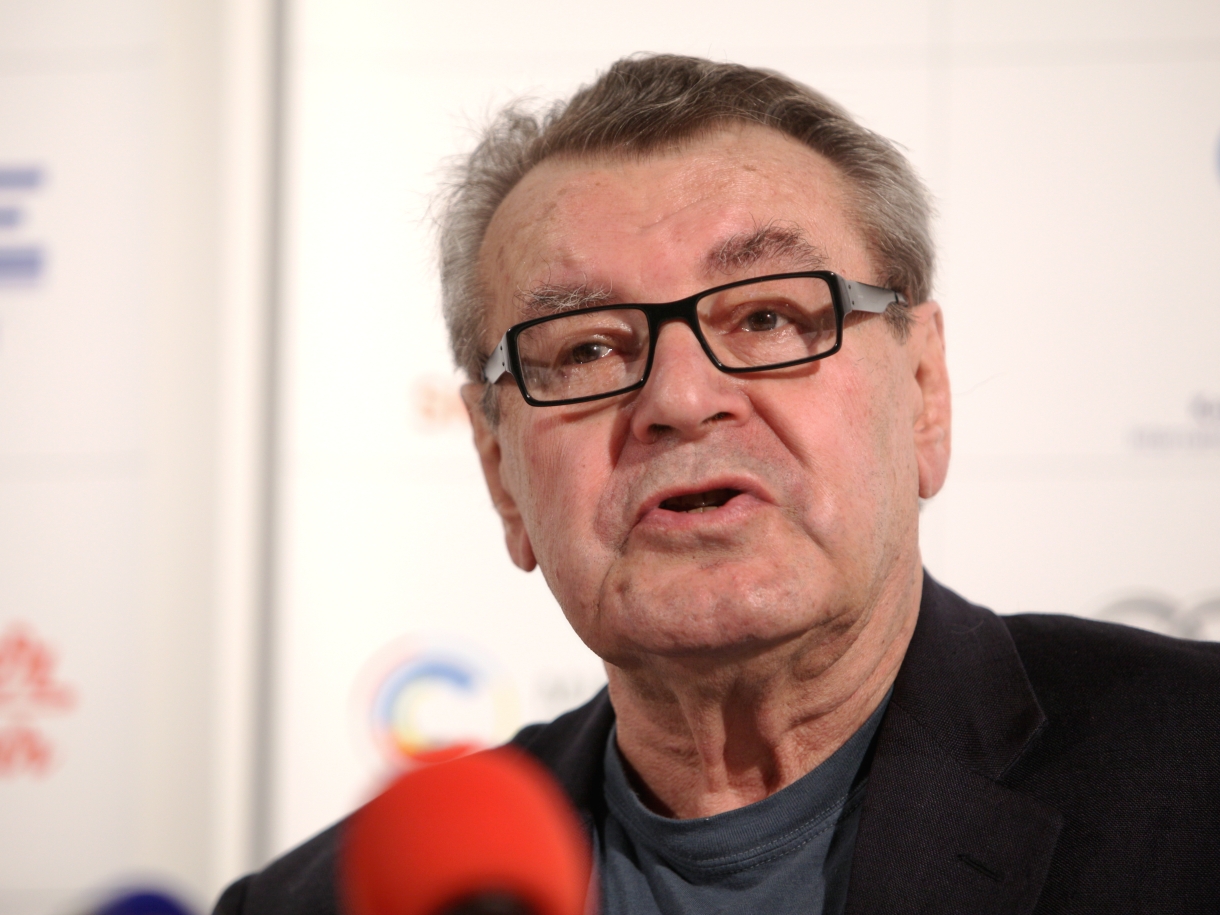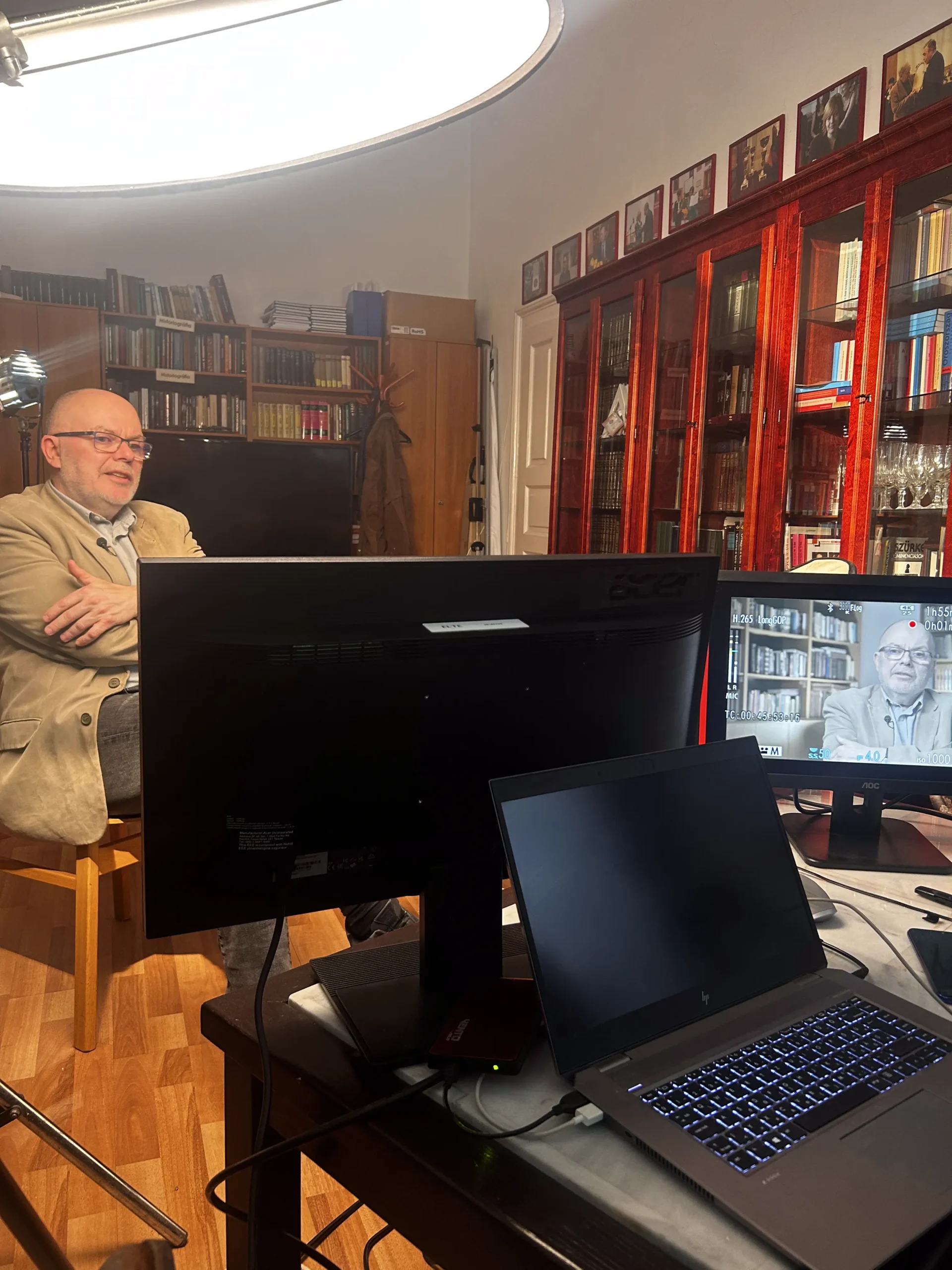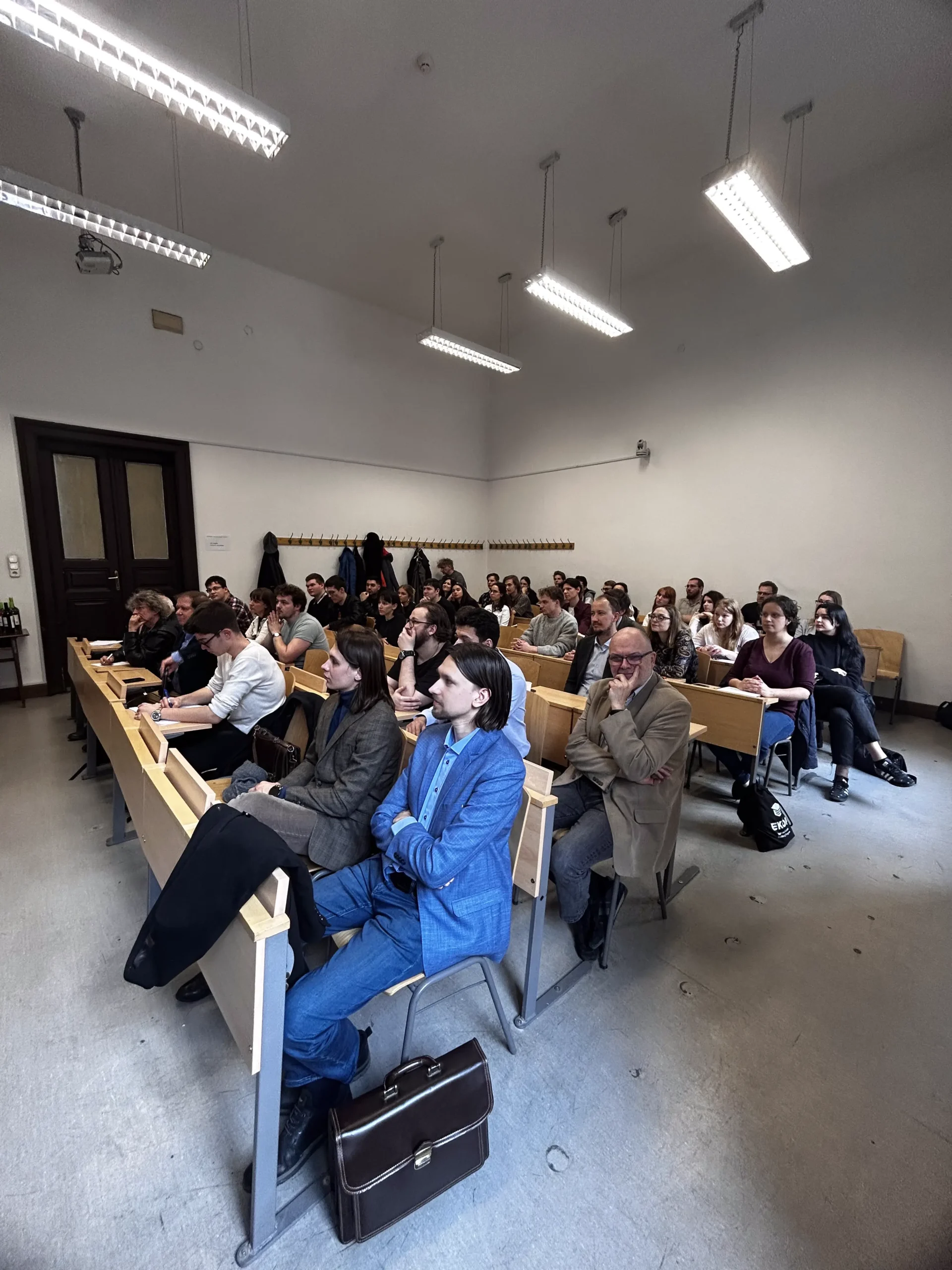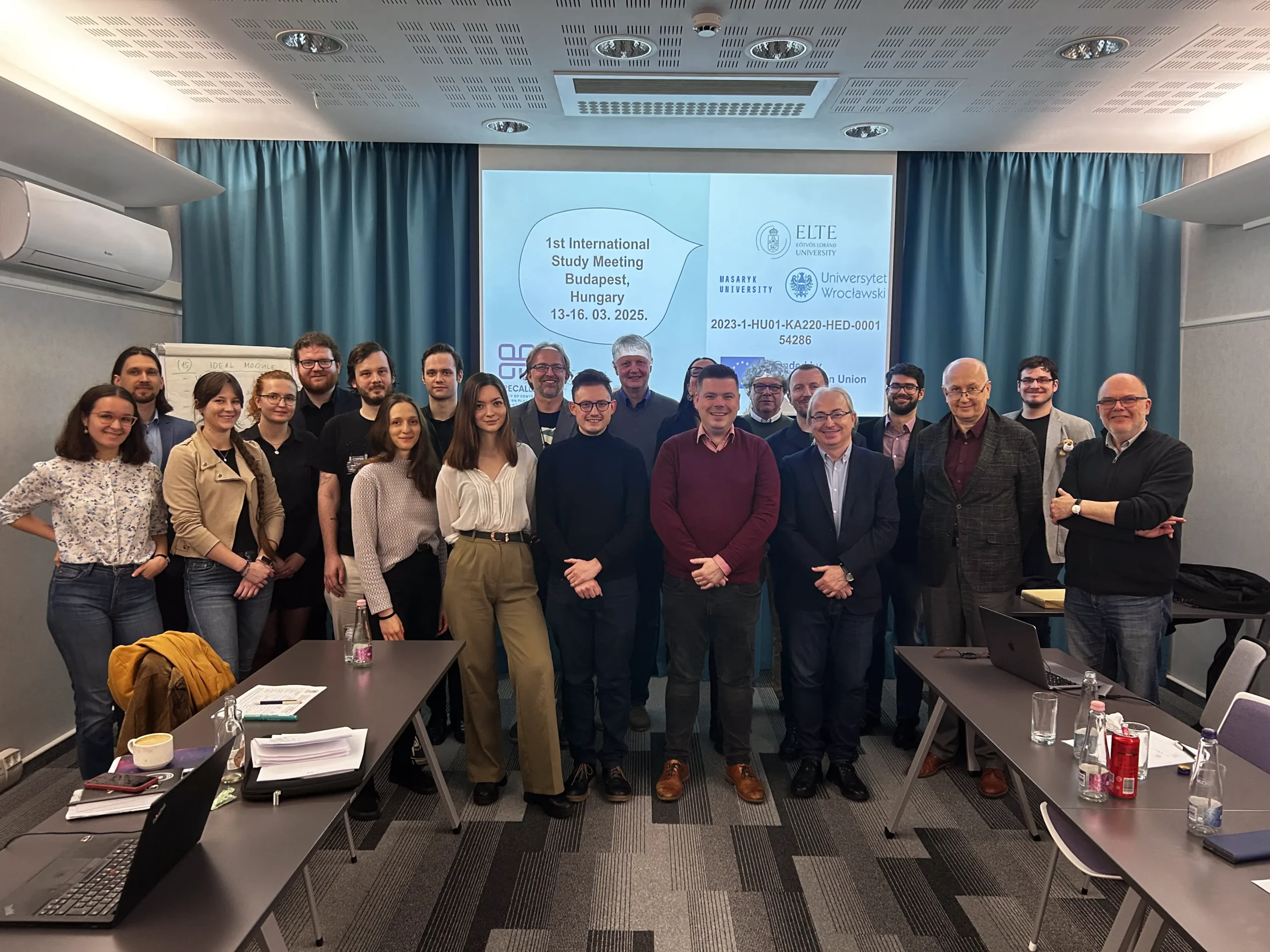Czechoslovak new film wave – Čáslav
Fact of the Czech figure „The independent culture under the communist regime”
Part of the „Culture against communism„ topic
In Čáslav there is a sculpture commemorating the local native Miloš Forman (1932-2018). The award-winning director was one of the representatives of the so-called Czechoslovak New Wave, an artistic movement considered to be the peak of Czechoslovak cinema.
The New Wave consisted of a number of directors and screenwriters who began working in the 1960’s. It was not a programmatically bound movement; on the contrary, these authors were united by their resistance to schematisation. The New Wave is associated with the relaxation of political conditions in the 1960’s, which allowed the authors to recognize new trends. The emphasis in their works is placed on realistic depiction of life, social context and poetics. The genre of their work varied from documentaries by Věra Chytilová (Something Different) to historical films by František Vláčil (Markéta Lazarová) to comedies by Jaroslav Papoušek (Homolkovi trilogy) and Jiří Menzel (Closely Watched Trains).
With the advent of normalisation, filmmakers were restricted and their films banned. Several authors chose to emigrate, e.g. Miloš Forman continued his work in the USA and was awarded several Oscars (Amadeus, One Flew Over the Cuckoo’s Nest). The banned films (Larks on a String, The Ear) did not receive their renewed cinema premieres until after 1989.
